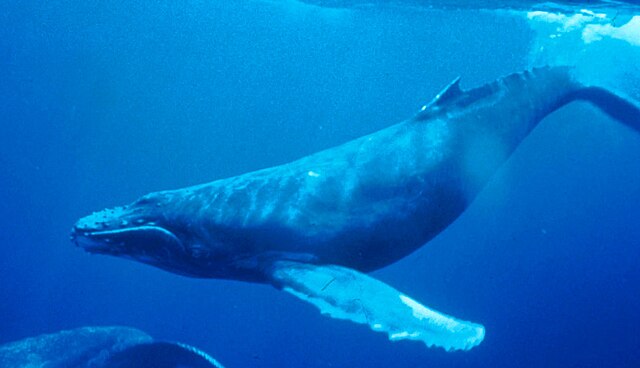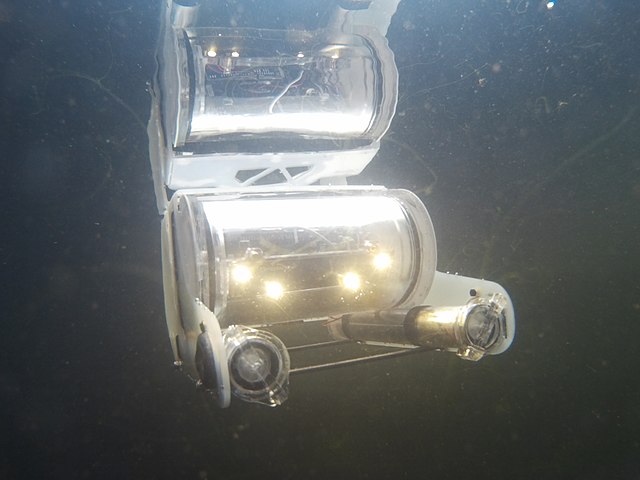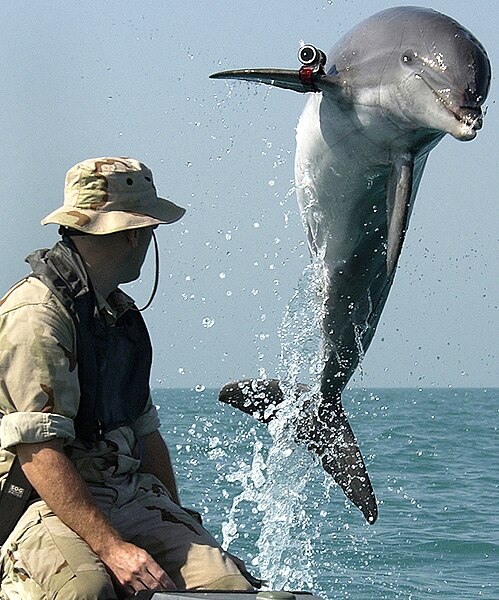1. Brin’s writing improved! I’m excited about this. Here he pays attention at times to the sounds of words and weaves in some consonance and assonance to up his writing game. On reflection, in Startide Rising he paid some attention to sound when writing the English approximation of Trinary, but that was it, and by being separate from the prose of the novel it didn’t really endear his writing to me. This works though. I like it. Here’s an example from the start:
“Garth. So many times the victim.One more sentence to drive my point home:
The outlines of brown continents and shallow blue seas lay partly smeared under pinwheel stormclouds, as deceptively white and soft to the eye as a Gubru’s plumage. Along just one chain of islands—and at a single point at the edge of the largest continent—shone the lights of a few small cities. Everywhere else the world appeared untouched, perturbed only by occasional flickering strokes of stormbrewed lightning.
Strings of code symbols told a darker truth. Garth was a poor place, a bad risk. Why else had the wolfling humans and their clients been granted a colony leasehold there? The place had been written off by the Galactic Institutes long ago.
And now, unhappy little world, you have been chosen as a site for war.”
“Nervous, anticipatory shivers flowed down the bureaucrat’s head-crest all the way to its vestigial flight feathers, bringing forth chirps of complaint from the two Kwackoo aides.”The above two quotes are from the prelude. He has some nice sounds here and a nice collection of words. It doesn’t continue throughout enough of the rest of the novel to transform this whole novel to great writing, but there is enough in there that I enjoyed the writing here much more than in the last novel.
2. Brin also paces this book well. It’s a more traditional narrative arc with important actions occurring throughout the novel, slowly building the tension and the stakes. The novel is paced appropriately for this structure. But it also has that overarching plot point of the Gubru invasion of Garth and the Earthling struggles to get rid of them. (There are no dolphins: Here the Earthlings are humans and neo-chimpanzees and gorillas.) This overarching arc was what the last novel relied too much on. Here, by beginning with important actions and keeping them coming throughout the novel, the pacing is much better at grabbing me and keeping me moving and interested. For example, the book starts with the invasion, then builds into the resistance movement quickly instead of waiting for a third of the book to pass before the resistance gets going, like the last novel would have. This pacing is successful.
3. Brin remains good at character creation and progression. Specifically, Robert changes significantly throughout the novel: to the point that his portions of the book consists of a coming of age story. Like Toshio in the last book, Robert’s change is fundamental, but it’s not a major shift—say, from an antagonist to a protagonist. Rather, it’s a fulfillment of Robert himself. He begins as a boy version of Robert with some ignorance and talents, he ends up more of an adult, still with some ignorance, but his talents progress to skills as his mastery grows throughout the novel. There is a Robert-ness that stays from start to end, keeping him established as a consistent character that changes. And other characters similarly change throughout the novel. This is really good character creation and change.
4. The overt theme here is prioritizing ecological health. It’s something the humans value and it’s a way for this new galactic race to gain a place in the galaxy. It’s also something that the other races value, at least in word. This references Jane Goodall often in this respect, partly because her memory functions as some sort of patron saint to the neo-chimpanzees in the novel. But there is another, more interesting and unusual theme threaded throughout the novel: finding good times within the bad times. The invasion of Garth disrupts the ecological restoration of the planet and the lives of the inhabitants. But despite the desperate struggle they go through in resisting and subverting the invasion, they all find moments of happiness and peace during the war. Robert and Fiben find love, Athaclena finds balance, Mary finds a way to attain a personal connection to her son, and the other protagonist characters all find their own little slices of happiness too. In essence, this is the theme of Solzhenitsyn’s One Day in the Life of Ivan Denisovich, where Ivan is successful in so far as he is able to make his plight slightly better for another day—he is satisfied with survival, a little extra bread, and a job well done. Here Robert is satisfied by testing himself against the invader and discovering his talents and doing a good job at this new task.
5. As a sequel, this novel has remarkably little to do with Startide Rising. It’s another story set within the same world as that earlier book, around the same time, but it’s in no way a continuation of the story. This novel is its own thing and you don’t have to read the other one to get this one. It’s well done and doesn’t fall into the same traps most sequels tend to. I like that about it.
6. The opening is great. It allows just enough of the pre-invasion to take place for the invasion to have import, without dragging the opening on too long like the last novel did with the landing on the new world. Again, there’s no initial murder, and that’s a big positive for me. In the fifth chapter, the invasion occurs, allowing Brin to introduce the main characters and define them in relative peace before the war is begun. This pacing is perfect for the length of the novel.
7. In all, this is a better book than the last in most respects. The overtness of the ecological theme made it feel slightly forced at times, which means the ending was a bit incongruous as the characters don't really change through it, they just coast through the last section. But other than that, this novel was more enjoyable to read, better written, and paced better than the last novel. I look forward to reading more Brin in the future.
.jpg)














